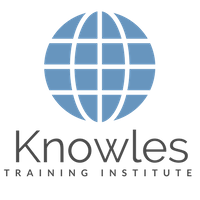Memory Improvement Lunch Talk in Taiwan
Embark on a fascinating journey to unlock the secrets of memory improvement in our engaging lunchtime talk. Join us as we delve into proven techniques and strategies to enhance memory retention, recall, and overall cognitive function. Whether you’re a student looking to excel in exams, a professional aiming to boost productivity, or simply someone eager to sharpen your mental acuity, this session is designed for you. Get ready to discover practical tips and exercises that will empower you to remember names, dates, important information, and more with ease and confidence.
Ready to supercharge your memory? Don’t miss out on this opportunity to enhance your cognitive abilities and unlock your brain’s full potential. Reserve your seat now for our Memory Improvement Lunch Talk and take the first step towards mastering the art of memory enhancement. Join us as we explore the fascinating world of memory and equip ourselves with the tools needed to remember more, learn faster, and achieve greater success in both personal and professional endeavors!
Talk Objectives:
- Understanding Memory Processes:
Explore the fundamental processes involved in memory formation, storage, and retrieval to gain insight into how the brain captures and holds information. - Introduction to Memory Types:
Differentiate between short-term and long-term memory, understanding their roles in daily life and learning how to leverage each effectively. - Effective Mnemonic Techniques:
Learn and practice mnemonic devices, such as acronyms and visualization, to enhance memory recall and make information retention more efficient. - Memory Improvement Exercises:
Engage in interactive exercises designed to stimulate brain function and improve memory capacity, fostering a proactive approach to cognitive enhancement. - Strategies for Information Organization:
Discover practical methods for organizing information, creating mental frameworks, and establishing associations to facilitate easier recall. - Healthy Habits for Brain Health:
Explore lifestyle factors, including diet, sleep, and stress management, that contribute to overall brain health and support optimal memory function. - Technological Aids for Memory:
Understand how technology, apps, and tools can be harnessed to aid memory improvement, providing additional resources for enhanced learning. - Real-world Application:
Explore ways to apply memory improvement techniques in daily life, from remembering tasks and appointments to recalling important details during meetings. - Overcoming Forgetfulness:
Address common challenges related to forgetfulness and absent-mindedness, learning practical solutions to overcome memory lapses. - Building a Personalized Memory Toolkit:
Combine the various strategies and techniques learned into a personalized toolkit, empowering participants to continue their journey of memory improvement beyond the session.
In conclusion, mastering memory improvement is not only beneficial for personal and professional growth but also enhances overall cognitive abilities. By attending our lunch talk on memory improvement, you’ll gain invaluable insights, practical techniques, and resources to enhance your memory, optimize learning, and excel in various aspects of life. Join us on this journey to unlock your memory potential and take the first step towards a sharper, more agile mind.
Don’t miss out on this opportunity to invest in your cognitive well-being and improve your memory skills. Reserve your spot for our upcoming lunch talk now to embark on a transformative journey towards enhanced memory and improved cognitive function. Sign up today and start reaping the benefits of a sharper mind!
More Information:
Duration: 60 minutes
Fees: $2499.97 USD 1,019.96
For more information please contact us at: contact@knowlesti.tw
If you would like to register for this talk, fill out the registration form below.



